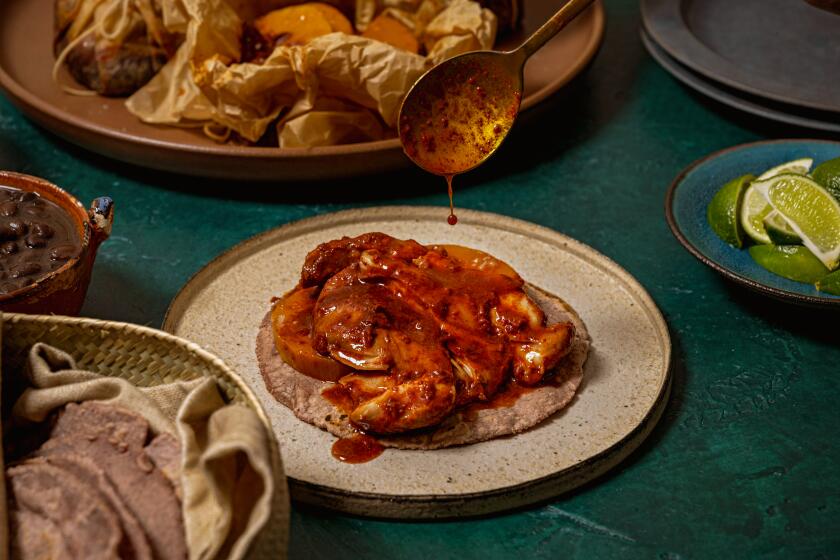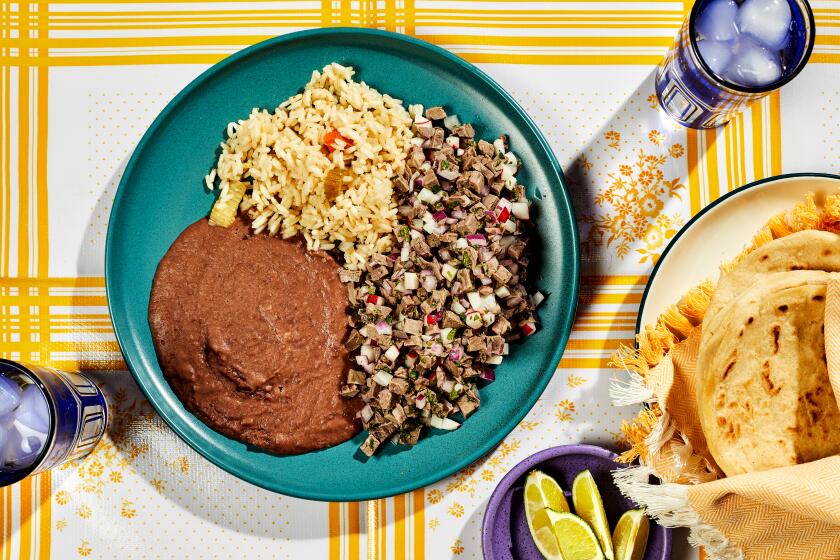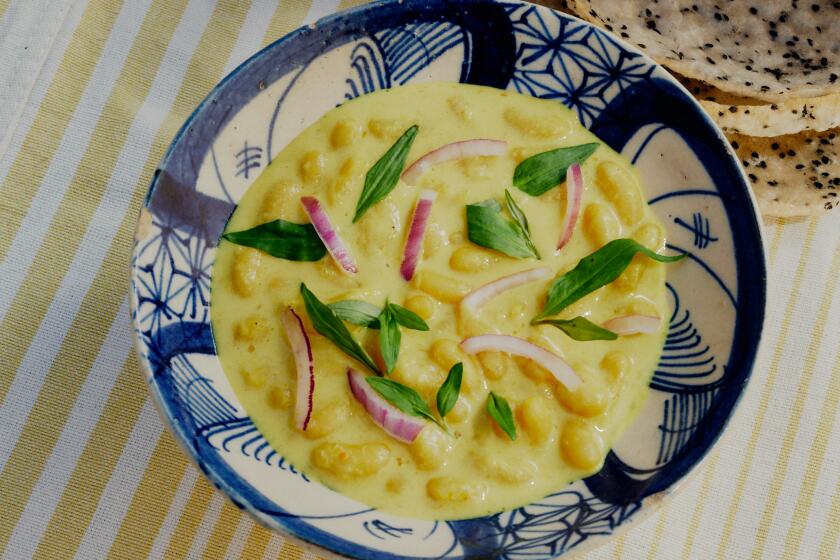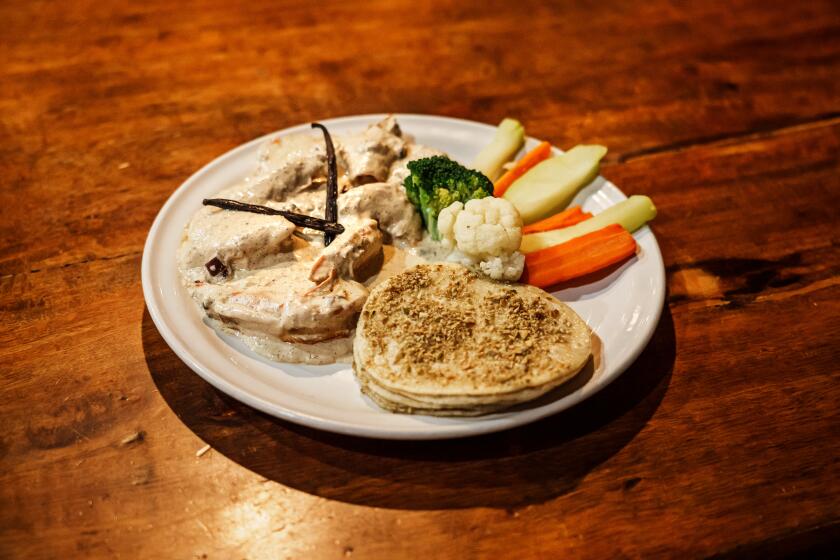Caramelized Lemon and Feta Turkey Meatballs
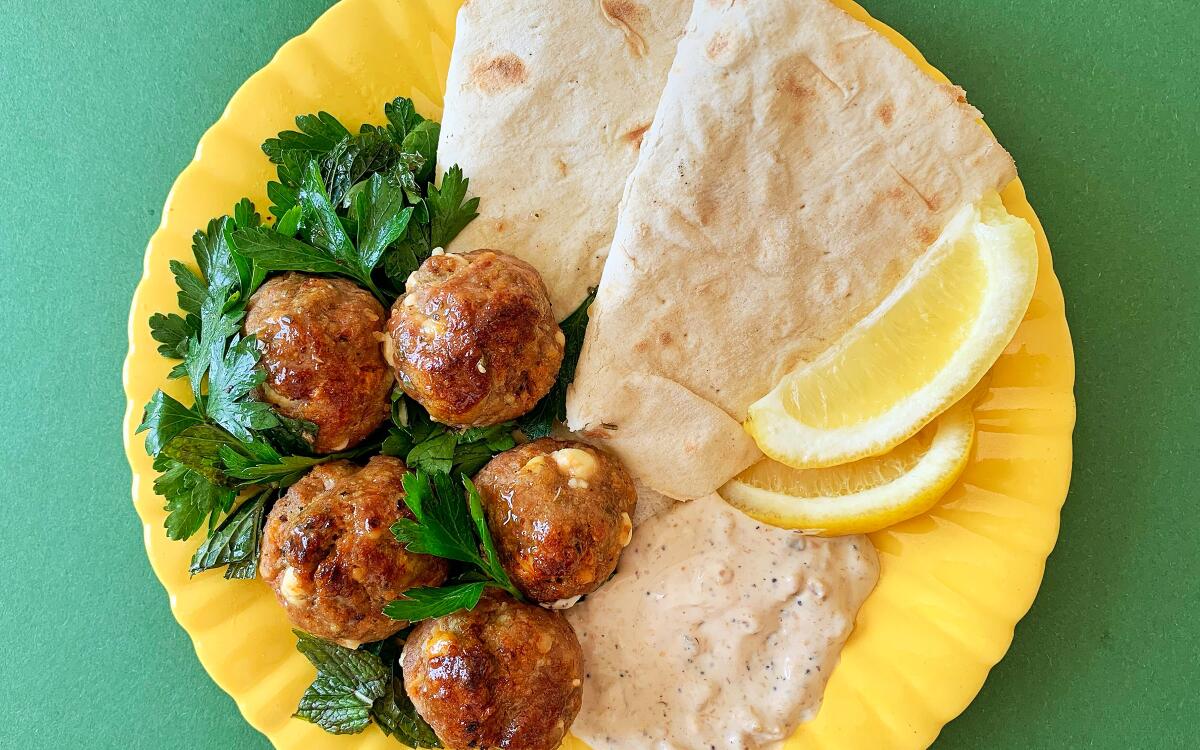
- Share via
This recipe makes enough meatballs (about 26) for four people plus some leftovers, which you’ll be happy to have. Freeze them, then thaw in the fridge overnight before reheating in a 350-degree oven for 10 minutes. And if you want to make these meatballs but can’t bear to bring yourself to make the caramelized lemon paste, substitute the amount called for here with the finely grated zest of 2 lemons — the meatball mixture will still hold together. While the meatballs won’t have the complex grilled lemon flavor, they will still taste great.
Heat the oven to 450 degrees. Line a large rimmed baking sheet with foil and brush the foil lightly with some olive oil.
Add the turkey to a large bowl and break it up into small chunks with your hands. Sprinkle the feta over the meat, followed by 1/4 cup plus 2 tablespoons lemon paste, the breadcrumbs and egg. Use a Microplane grater to finely grate the garlic over the meat, then season the mixture with the salt and pepper. Mix with your hands until all the ingredients are evenly combined.
Pinch off golf ball-sized pieces of meat and roll into balls (the meatballs should weigh about 1 ounce and measure 1 ½ inches in diameter), transferring each to the prepared baking sheet as you roll, spacing at least 1 inch apart. Brush the tops of the balls lightly with more olive oil, then bake until browned on the outside and just cooked through, about 15 minutes.
While the meatballs are baking, stir together the remaining 2 tablespoons lemon paste with the yogurt in a small bowl. In a medium bowl, whisk together the 2 teaspoons olive oil with the vinegar and oregano. Add the parsley and mint leaves, season with salt and pepper and toss to dress the herbs in the vinaigrette.
When the meatballs are cooked, place them under the broiler until golden brown on top, 3 to 4 minutes. Transfer the meatballs to plates and top with the herb salad. Serve with the lemon yogurt sauce, lemon wedges and flatbread or toast on the side.
Caramelized Lemon Paste
Wash the lemons under hot running water then dry thoroughly. Set a Microplane grater over the bowl of a food processor or blender, and finely grate the zest from all the lemons so it falls into the processor. Alternatively, remove the zest in large strips with a vegetable peeler, but be careful not to take any of the white pith underneath. If you do, trim it off with a paring knife and discard.
Halve the lemons, then juice them, straining out any pulp or seeds; reserve the juice (you should have about 1 cup plus 2 tablespoons juice). Trim off and discard the ends from the spent pith shells, then cut the shells into ¼-inch pieces.
Heat the oil in a large saucepan over medium-high heat. Add the chopped lemon and sprinkle with the salt. Cook, stirring occasionally at first and then constantly toward the end, until all the pieces are evenly, deeply caramelized, 8 to 10 minutes.
Scrape the contents of the pan into the food processor with the zest. With the processor running, slowly drizzle in the reserved lemon juice and continue processing until the paste is as smooth as possible, about 20 seconds.
Transfer the paste to an airtight container, pressing on it to compact it, then drizzle enough olive oil over the surface to cover (this helps preserve the paste). Store in the refrigerator for up to 2 weeks.
Get our Cooking newsletter.
Your roundup of inspiring recipes and kitchen tricks.
You may occasionally receive promotional content from the Los Angeles Times.











